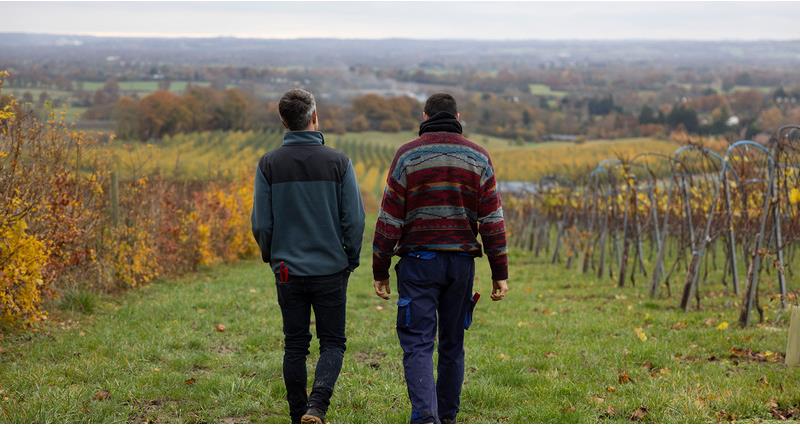Latest news
AgDiversity Course
A new online learning course aims to raise awareness of diversity, equity and inclusion issues in UK agriculture.
, developed in collaboration with the SSFF (School of Sustainable Food and Farming), Nuffield Farming Scholarships Trust, AHDB, McDonald's and Frank Parkinson Agricultural Trust, is a bespoke online course to raise awareness of DEI (diversity, equity and inclusion) in British Agriculture.
The course has been created specifically for those involved in agricultural, rural and land-based industries. It is open to anyone wishing to learn more about DEI for a fee of 拢30 鈥� the lowest cost of any openly available course of its kind. .
Sustainable Farm Networks
Launched in summer 2024, the School in, collaboration with Landex, founded the to connect farm demonstration networks across the UK.
The SFN offers a platform to share innovation, research findings and best practice across the network to tackle the challenging issues relating to sustainability and the overall transition.
Do you run a group or network and would like to take part? Are you passionate about achieving resilient agricultural production, carbon net zero and enhancing sustainability parameters in your business? and find out how you can be part of the Sustainable Farm Networks.
Get involved
The School is a key resource to help support you on your journey to climate-friendly agriculture and to improve business resilience.
Over the past two years, the school has delivered for farmers and the supply chain by convening industry research, launching future farmer programmes, coordinating the , running , and facilitating debates.
About the School
In 2021, Harper Adams University, the NFU, Morrisons and McDonald鈥檚, created this non-exclusive collaboration for knowledge sharing to empower farmers to produce nutritious, tasty, British food sustainably.
The School is a trusted source of information, research and learning for farmers and the wider food industry, to support with navigating the road to net zero and sustainable farming.
It aims to diversify new entrants to the industry, upskill current farmers and food industry colleagues, work towards improved systems and farm data sources, develop research and work collaboratively with policy makers to support the transition to a more sustainable food production system.
鈥淏eing part of the school means you鈥檙e influencing in this space 鈥� sharing a common language and through the work of the NFU it means we can align on the key messages to government,鈥� said NFU net zero policy delivery manager Kate Bannister.
鈥淭his influencing work is the very nature of being involved with the School.鈥�
How can the school help farmers?
The school offers a unique range of courses and workshops designed by experts in sustainable farming and food production at Harper Adams, as well as by delivery partners from the industry and the wider supply chain.
Alongside expanding the industry鈥檚 knowledge of the environment, animal welfare, and positive farming relationships, the school strives to develop the skills needed in our sector to produce food.
鈥淎griculture is already making great strides, but we must continue to support and grow our knowledge and understanding 鈥� we created the school to address the challenge of transition and think about how can we get agriculture reducing more emissions and enhancing nature,鈥� Simon Thelwell, Strategic Director of the School explained.
鈥淭he journey towards sustainable food production has begun,鈥� Simon said.
鈥淲hat we need now is national coordination of demonstration farms to share and develop our knowledge 鈥� a network of networks. Together we鈥檒l create an exemplar for the UK and the World.鈥�
The School is underpinned by four core pillars:

Pillar 1: New talent
Champions career opportunities in food and farming, attracting a new generation of forward-thinking individuals to the industry.

Pillar 2: Upskill
Provides education and training to ensure the existing workforce remains at the forefront of sustainable practices.

Pillar 3: Research
Works with academia and industry to find solutions to industry challenges.

Pillar 4: Influence
Engages with policymakers to raise awareness of the school and for government support for sustainable farming practices.
Strength in partnership
Retailers and food processors engaging with farming communities and individual farms have a lot of knowledge to share. A primary aim of the School is to make this support and advise accessible for the whole industry.
In November, the NFU food business unit and climate change team organised the first prospective delivery partner event with the School at Stoneleigh.
Supply chain stakeholders were invited to understand more about how they can invest in the School to support their sustainability ambitions.
Guests included delegates from Greene King, Coop, Yeo Valley and Cranswick. The event successfully raised awareness and a number of attendees have signed up to invest in farmer programmes and offer support to share learnings of supply chain activities.






